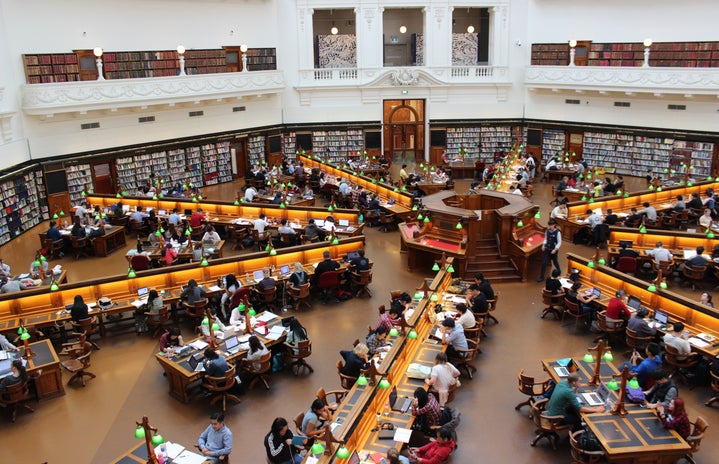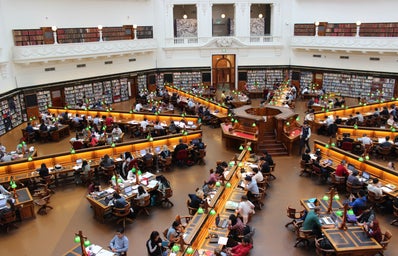A well-meaning person once asked me why I was involved with Her Campus if I was a computer science major. That question struck me as odd — I didn’t think HC had a requirement to be a journalism or telecommunications major. After all, I’d been involved in HC UFL since my sophomore year of college and I’ve seen members majoring in a range from English to pre-med. It was only when I backed up and said that I was also an English major that this person accepted it.
That stuck with me.
I’ve always been confused about why people see science and tech-related things on completely opposite ends of some spectrum: tech versus the humanities, arts versus the sciences. If you’re part of the UF meme page, you saw it unfold in the final inevitable battle between CLAS and the College of Engineering. It’s this weird modern contrived notion of what classifies “intelligence.” For some reason, STEM fields tend to be viewed as more challenging and lucrative, but seen as the boring, practical, must-do option. On the opposite end, humanities tend to be viewed as fun and creative — but also as unnecessary, simple, and often the first thing to get cut when it comes time to budget.
There is a preference in society towards STEM fields, to the point where most other majors are seen as backups, or things to do as hobbies on the side. To succeed in math and science is to be seen as “smart.” To succeed in art or writing is to be seen as “creative.” And there are different connotations with each word. We see smart as practical, and creative as.… not so much. And it is rare to be both those things, apparently.
This construct — something we interact with all the time, from Meme battles to right-brain-left-brain quizzes — is a weird one to process, especially when in most of human history, art and science were seen as working together, not as two separate things. Leonardo Da Vinci, the quintessential Renaissance man, was an artist and a scientist; many of his contemporaries, following in the footsteps of Ancient Greece and Rome, sought to achieve excellence in the sciences and the arts.
Nowadays, I can’t tell you how often I overhear people in my science classes bragging about how hard their classes are compared to other majors, about how they haven’t read a book in years, about how no other majors are relevant to society.
But in my humanities classes, I hear people bragging about how technologically incompetent they are, how they just can’t “do” basic math.
I believe that there is much to be gained from studying both ends of this so-called “spectrum.” In fact, I don’t believe that there’s a spectrum at all. I believe that these are two incredibly rich fields that do not have to be mutually exclusive. The pinnacles of human accomplishment in both fields require skills that are commonly found in the “opposite” end. The technicality and precision of great works of art comes from an area of logical thinking. The creative breakthroughs of technological innovation stem from the imagination.
From my own personal experiences, let me tell you about the times I feel most creative. I can think of two. One is when I’m working on a short story and the ideas I need are just blossoming from my brain. And the second is when I’m brainstorming ideas to get a particular piece of code to work.
Let me tell you about the times I feel most logical. I can think of two. One is when I’m working away at my code, trying to fit all the pieces together. The other is when I’m on the verge of a breakthrough on my papers, and I must use the text I am given, the journals I’ve sourced, in order to perfect my argument.
It’s easy to fall into the societal convention of the spectrum of STEM and the humanities. But real life is not as clearly divided, it never is. There are more people out there who understand the importance of a well-rounded and robust education, that there can be no art without technology, no innovation without humanities. That science and the humanities are not at war, but rather work together to achieve greatness.

